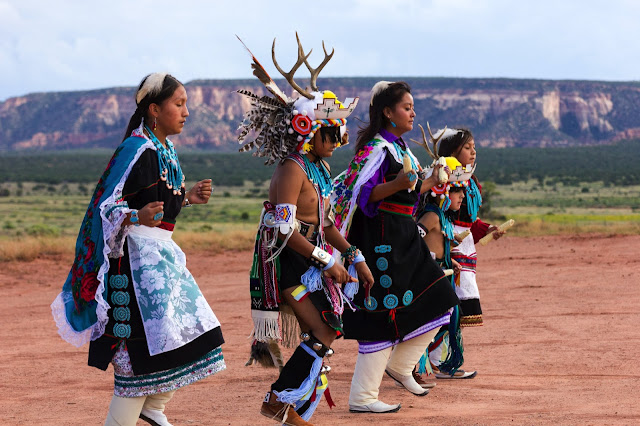American Indian Film Festival honors "The Thick Dark Fog"
This article was published in Indian Country Today in 2011. It was part of a project funded by the George Polk Center for Investigative Reporting. For more on topics like this, see my book, American Apartheid: The Native American Struggle....
Director Randy Vasquez’s affecting movie about Walter
Littlemoon’s traumatic childhood years in Pine Ridge Indian Reservation boarding
schools has just won Best Documentary Feature at the 36th annual American
Indian Film Festival, in San Francisco. “By making The Thick Dark Fog, we wanted to give the boarding-school
discussion mainstream awareness,” said Vasquez. The film is his second feature;
the first was the award-winning 2002 documentary Testimony: The
Maria Guardado Story, about a Salvadoran
human-rights advocate.
| Vasquez and Littlemoon at the festival. |
The honor to The Thick
Dark Fog was among many bestowed by the festival, which is produced by the
American Indian Film Institute. Vasquez, Littlemoon, and his wife, Jane Ridgway, participated in a special panel discussion on the violent, repressive schools Indian children
were required to attend until well into the 20th century and the enduring damage done to
Native people, communities, culture and language as a result. Ridgway had collaborated
with Littlemoon on the autobiography that inspired the documentary, They Called Me
Uncivilized: The Memoir of an Everyday Lakota Man from Wounded Knee (iUniverse,
2009), and appeared in the film.
An important part of Littlemoon’s journey
was figuring out why he experienced alternating flashbacks and sensations of
numbness—which he called the “thick dark fog.” After consulting a Harvard
Medical School psychological-trauma expert, Littlemoon learned he was suffering
from Complex Post Traumatic Stress, which arises from childhood ordeals. Once
his fear had a name, he could fight it and win, he said. Littlemoon hoped
others would take courage from his discovery and wage their own battles against
the debilitating effects of the residential institutions.
“Several younger people told me seeing the film helped them better
understand their parents or grandparents,” said Littlemoon. “One guy was crying
after the panel discussion and saying he now realized it was his boarding-school
experience that had caused him to fight so much with his parents.”
The revelations weren’t confined to the Native community, according
to Littlemoon: “A Japanese man who’d been imprisoned as a child in World War II
concentration camps told me he could now explain to his children how that
affected him. I felt the film had impact. We got our message out, and it felt
good.”
 |
| Ridgway, Littlemoon, Vasquez at panel discussion. |
For Littlemoon and Ridgway, participating in the film festival
was satisfying, but also a shock. “Never in our wildest dreams did Walter and I
imagine we’d be sitting in a movie theater and seeing ourselves on the big
screen,” said Ridgway. “We were swarmed by well-wishers, who expressed
gratitude for our bringing this issue forward. Wow. I could have cried right then and
there.”
Native American Public Telecommunications has
funded the production of the movie so far; Vasquez is now seeking additional
support via www.humanarts.org to ready it for PBS broadcast. In the meantime, he and producer Jonathan Skurnik are submitting the
film to more festivals.
Littlemoon and Ridgway are waiting to hear
where they’ll travel next and hoping to screen The Thick Dark Fog on Pine Ridge. “Many of my older generation, who went through boarding
school, have drunk themselves to death or just laid down and died,” said Littlemoon.
“I want to show those who survive why they’re feeling that way, so they can
begin to move on.”
Text c. Stephanie Woodard; photos courtesy Randy Vasquez.

